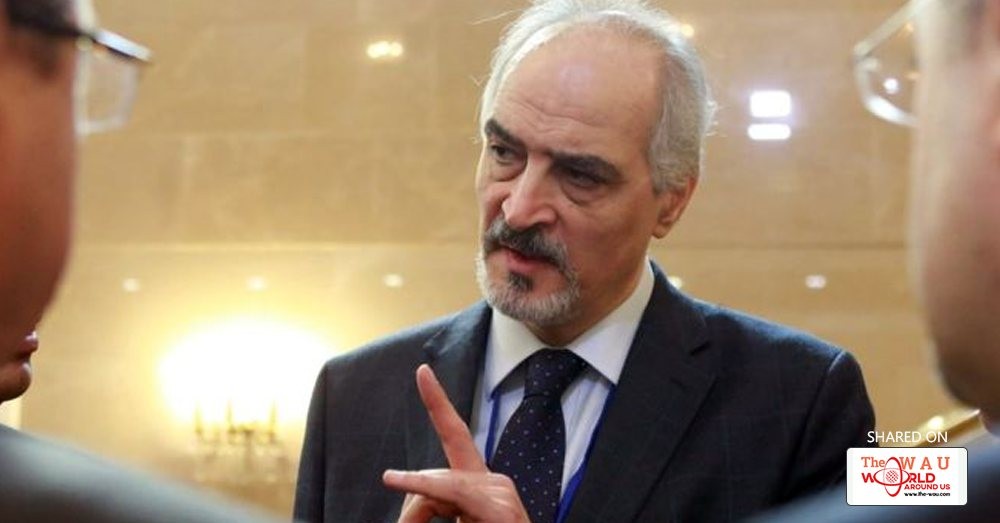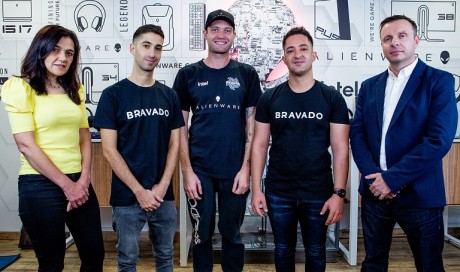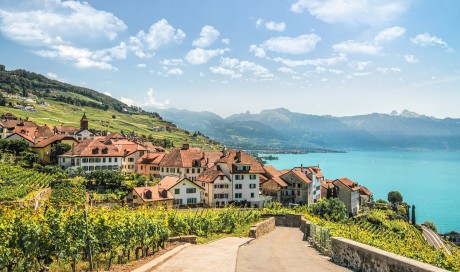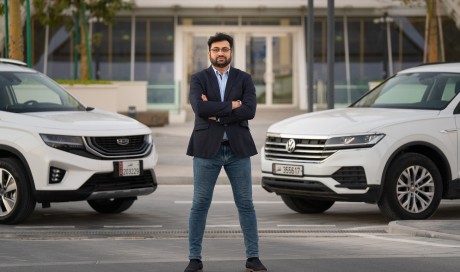The Syrian government's lead negotiator has denounced what he called his rebel counterpart's "provocative" comments at the start of peace talks in Astana.
Bashar Jaafari said on Monday Mohammed Alloush had acted in a way "removed from diplomacy" at the indirect talks convened by Russia, Iran and Turkey.
Mr Alloush described the Syrian government as a "terrorist entity".
He also said a political solution to the civil war was the rebels' preferred choice, but "not the only one".
The second and final day of the negotiations in Kazakhstan's capital is to get under way shortly.
They are the first talks at which the opposition delegation is formed exclusively of representatives of armed groups.
UN-brokered negotiations in Geneva involving exiled opposition political figures broke down last April with little progress having been made.
More than 300,000 people have been killed and 11 million others displaced since the uprising against President Bashar al-Assad began in March 2011.
- Returning to ruins of East Aleppo
- Turkey and Russia: Uneasy allies
- Turkish policy sets new path for Syria
- Why is there a war in Syria?
The talks opened on Monday morning at a hotel in Astana with the rebel delegation sat on one side of a large round table, and government officials on the other.

They were joined by representatives of Russia and Iran, which back Mr Assad, and Turkey, which supports the rebels, as well as UN special envoy Staffan de Mistura and the US ambassador to Kazakhstan.
The meeting was closed to the media after an address by Kazakh Foreign Minister Kairat Abdrakhmanov, who said it was time to "make the real breakthrough that Syrian people rightfully deserve".
The new equation, by BBC chief international correspondent Lyse Doucet, in Astana

Read Lyse's piece in full
Mr Jaafari, Syria's permanent representative to the UN, insisted he had delivered a "positive and optimistic" message.
But he said the "provocative tone and lack of seriousness in the opposition delegation chief's speech" had "irritated the attendees' diplomatic senses and experience".
A transcript of Mr Alloush's speech has not been released, but a video of part of it was posted online by a member of his delegation.

The political leader of Jaysh al-Islam described the government as a "terrorist" entity and called for groups fighting alongside it, including Lebanon's Hezbollah movement, to be placed on a global list of terrorist organisations.
Mr Alloush said the rebels wanted to stop "the horrific flow of blood" by reinforcing the truce brokered by Russia and Turkey at the end of last month, which both sides have accused each other of violating.
He warned: "A political solution in Syria is our choice but it is not the only one because we fight for our rights; our right to live; the right of freedom; the right to decide our fate and the people's right to decide who will represent them."
Low expectations among media, by BBC Monitoring
Syrian state-owned daily Al-Thawra says the gathering represents a chance for Damascus to vaunt its recent military gains, and a "last opportunity" for "terrorist groups" to negotiate peace.

London-based paper Al-Quds al-Arabi believes the talks are hampered by the fact that key players are not present.
In Saudi Arabia, which backs the rebels, pro-government daily Okaz dismisses the conference as an attempt by other "regional powers" to pursue their own interests.
Russia state TV Rossiya 1 says "the fate of Syria" is being decided in Astana, but Channel One TV described the aim as "finding common ground".
A spokesman for the rebel delegation, Yahya al-Aridi, earlier told reporters that they would also seek the lifting of government sieges of opposition-held areas and "goodwill gestures", including the release of political detainees and aid deliveries.

Mr Aridi added that it was hoped the meeting would "contribute" to the UN-brokered Geneva talks on a political settlement, which are scheduled to resume next month.
Government officials said they wanted to focus on "establishing lines of the cessation of hostilities" and separating the rebels represented in Astana from the jihadist groups excluded - so-called Islamic State and Jabhat Fateh al-Sham.
Share This Post












